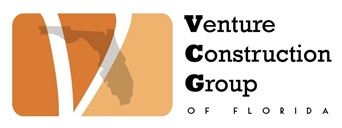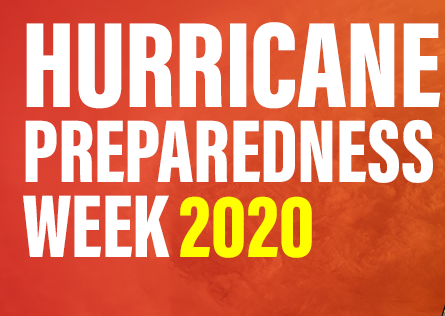It’s National Hurricane Preparedness Week! Hurricane Season in the the Atlantic Basin runs from June 1 to November 30 each year. As always, it’s important for all of us to be prepared here in Florida. Check out these great tips from the National Weather Service to help you determine your personal hurricane risk, find out if you live in a hurricane evacuation zone, review/update insurance policies, prepare your home and/or business, and gather emergency supplies.
According to the National Oceanic and Atmospheric Administration (NOAA), a normal Atlantic hurricane season produces 12 named storms, of which 6 become hurricanes, including 3 major hurricanes. This year, numerous reports anticipate higher than normal activity, including 14-18 tropical storms. Of those storms, seven to nine are forecast to become hurricanes, and two to four are predicted to strengthen into major hurricanes.
1. Determine Your Risk
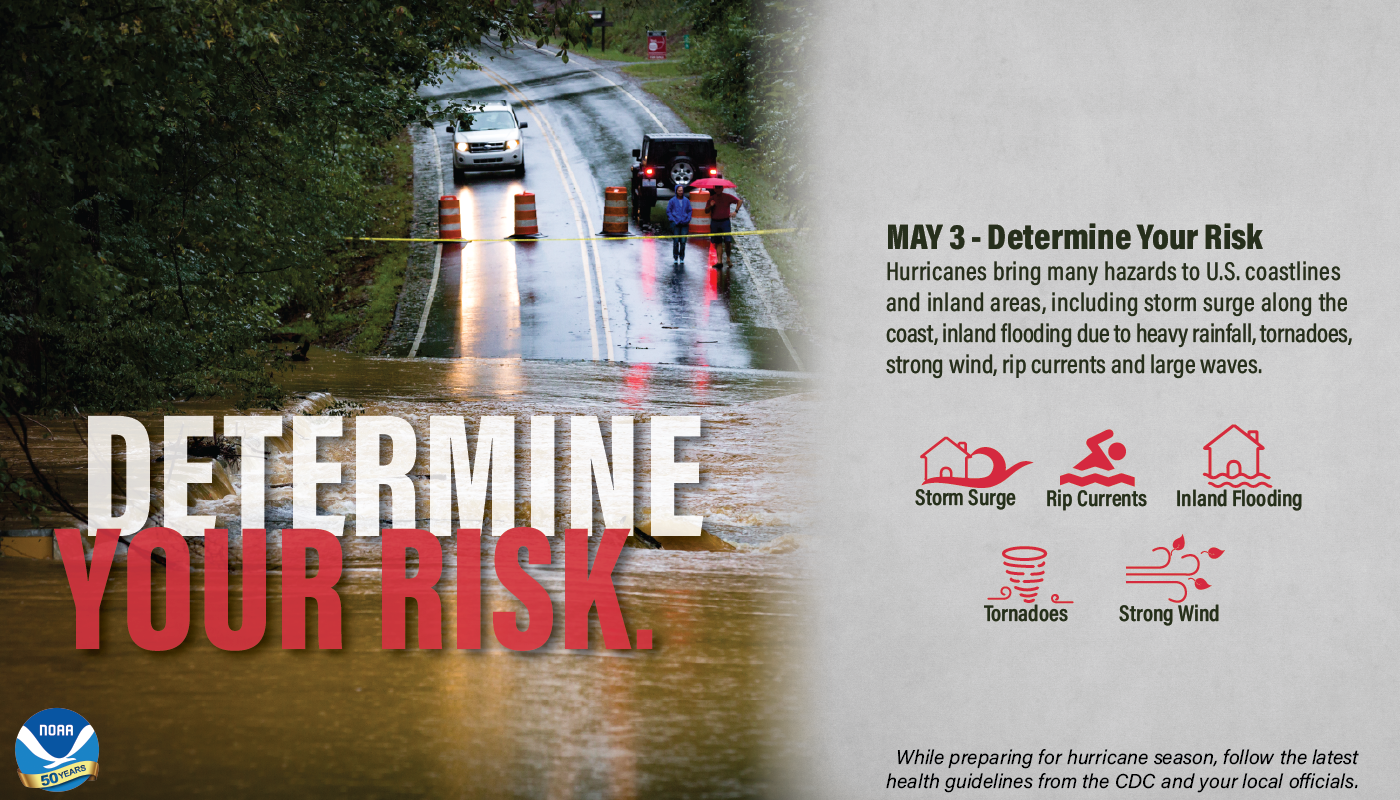
The threats from hurricanes can vary widely depending on where you live. It’s not just those along the coast that can experience significant, life-threatening impacts. Evaluate what you need to do to protect your home, family, and business now, before the first storm of the season even forms.
2. Develop An Evacuation Plan

Take some time to create or edit your hurricane evacuation plan. The first thing you need to do is find out if you live in a storm surge hurricane evacuation zone or if you’re in a property that would be unsafe during a hurricane. If you are, figure out where you’d go and how you’d get there if told to evacuate. You do not need to travel hundreds of miles. For businesses, it’s important to have a well-communicated Business Continuity Plan in place. For families, identify someone, perhaps a friend or relative who doesn’t live in an evacuation zone or unsafe home, and coordinate with them to use their home as your evacuation destination. Be sure to account for your pets, as most local shelters do not permit them. Put the plan in writing: type it up and save it online and back it up on the cloud. As hurricane season approaches, listen to local officials on questions related to how you may need to adjust any evacuation plans based on the latest health and safety guidelines from the CDC and your local officials.
Know Your Zone
3. Assemble Emergency Supplies
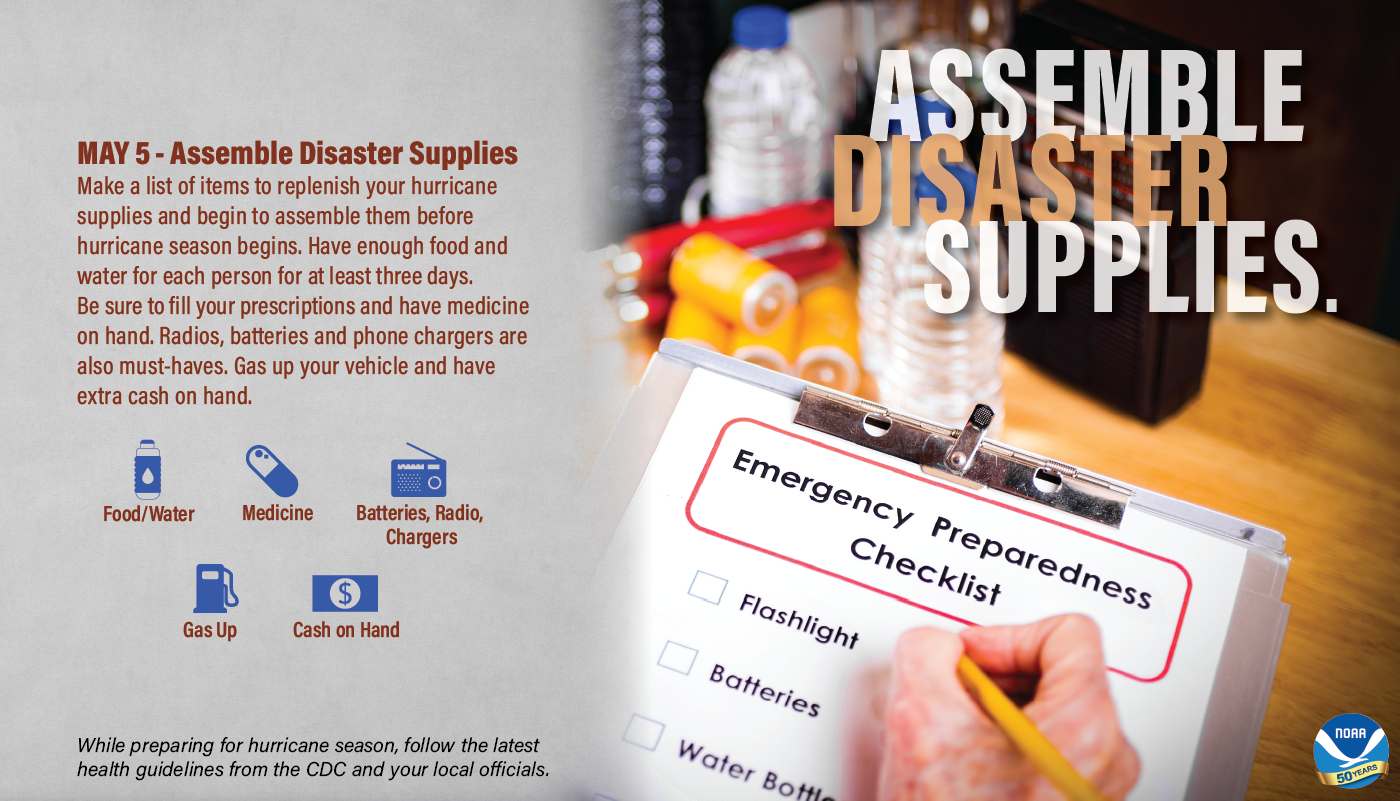
Just having enough supplies to make it through a hurricane isn’t enough. You need plenty to make it through what might be a long recovery period too. Water and electricity could be out for a week or more. Have enough non-perishable food, water and medicine to last each person in your family for a minimum of one week. Don’t forget pet food. Also make sure you have extra cash, a battery-powered radio, flashlights, and a portable crank or solar powered USB charger to charge your cell phone. The CDC recommends if you need to go to a public shelter, bring at least two cloth face coverings for each person and, if possible, hand sanitizer. (Children under two years old and people having trouble breathing should not wear face coverings).
4. Review Your Insurance Policies
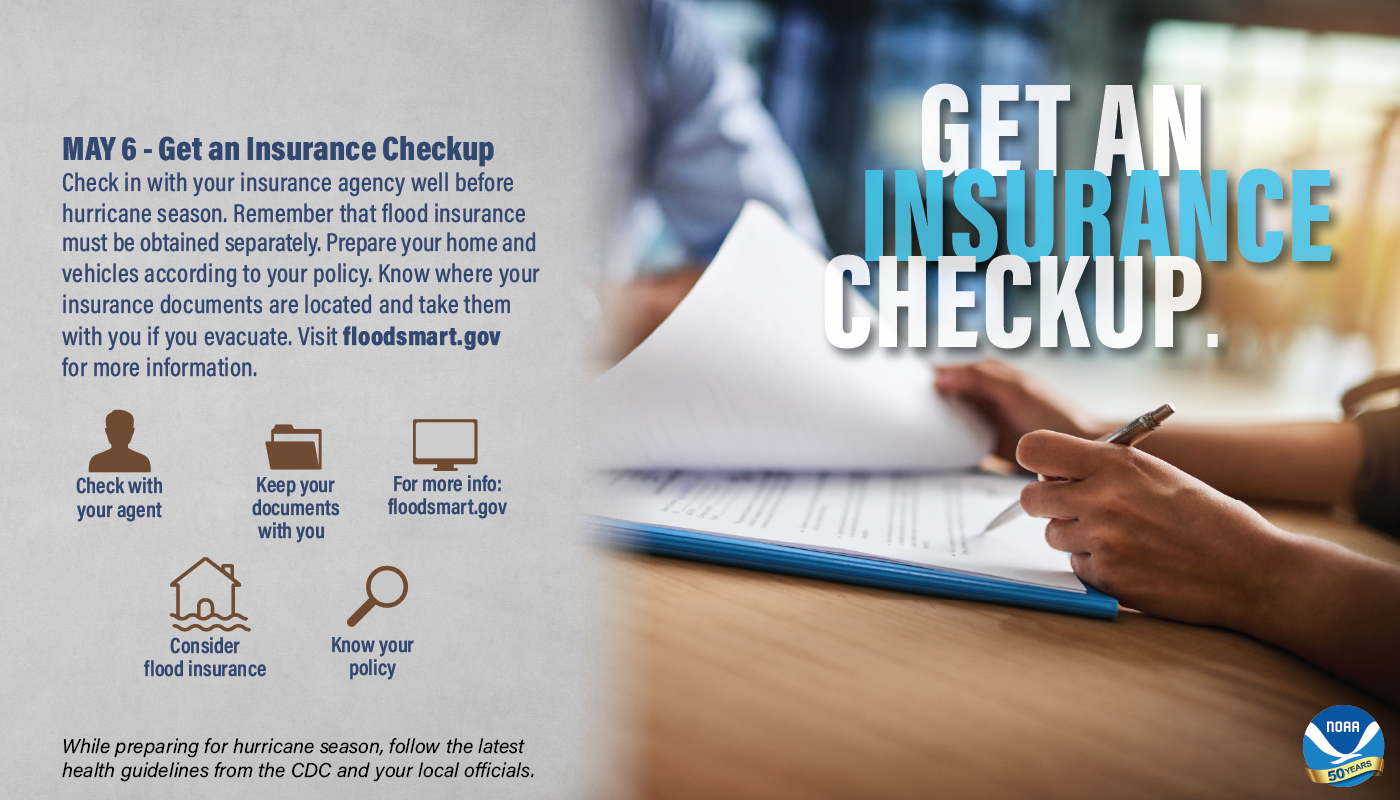
Call your insurance agent and ask for an insurance checkup to make sure you have enough homeowners insurance to repair or even replace your home. The same goes for your business. Ensure you’re adequately covered and understand exclusions. Some policies have increased deductibles for hurricanes and not all hurricane related losses are covered under traditional policies. And remember, standard insurance policies do not cover flooding. Whether you’re a homeowner or renter or business owner, you’ll need a separate policy for flooding. Flood insurance ensures that consumers have adequate financial protection against the devastating effects of flooding, without having to rely on post-disaster loans (usually paid back with interest) or emergency assistance. Act now as flood insurance requires a 30-day waiting period. Learn more about FEMA’s Federal Insurance and Mitigation Administration (FIMA) and the National Flood Insurance Program (NFIP). If you rent, make sure to review your renter’s insurance policy as well. These are also important to protect your belongings. Ensure that your insurance policies are printed and saved online and backed up on the cloud so they’re easily accessible when you need them. It’s also a good idea to create a Home Inventory List and Business Inventory List, and include your major belongings, supplies and equipment along with photographs in the instance you ever need to file a claim.
5. Prepare Your Property
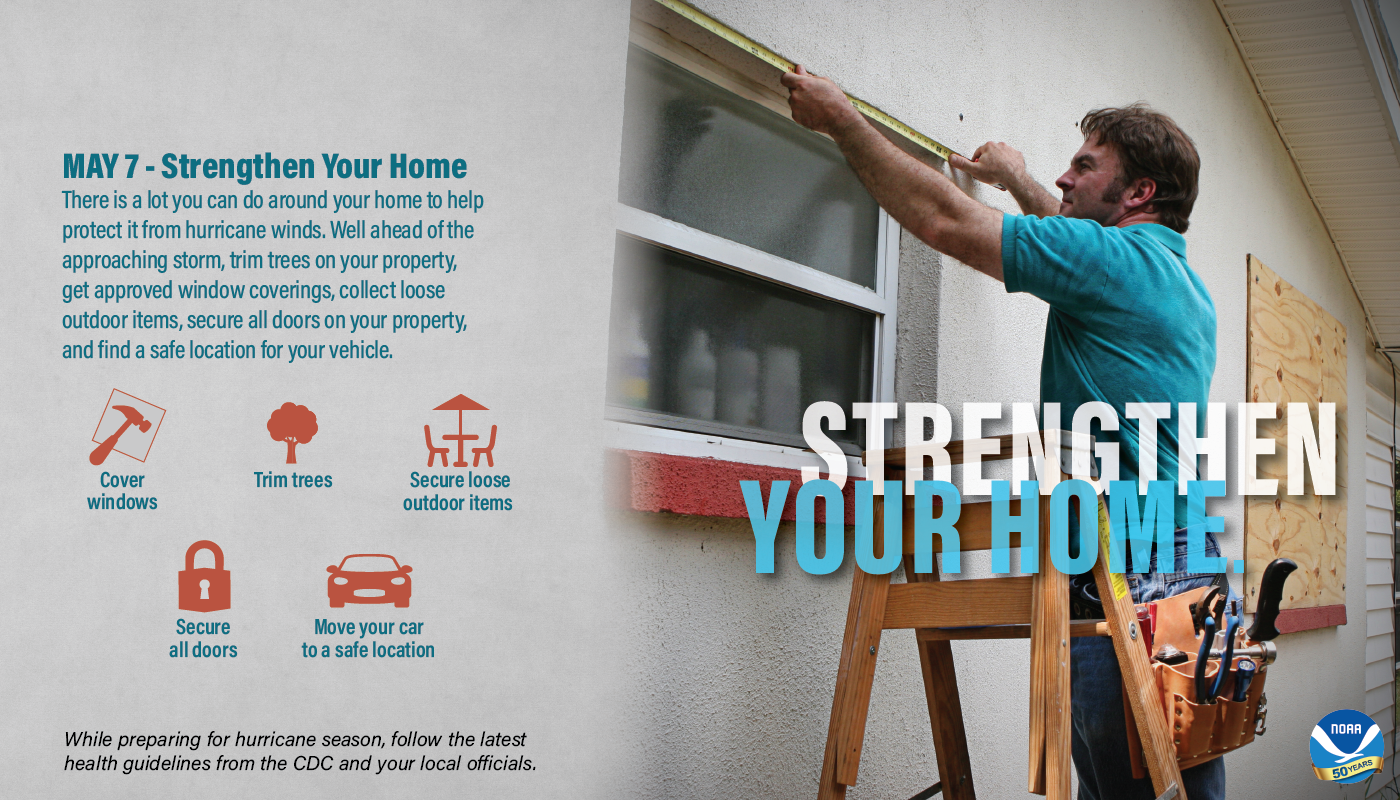
If you plan to ride out a hurricane in your home, make sure it is in good repair and up to local hurricane building code specifications. Remember, the garage door is the most vulnerable part of the home, so it must be able to withstand high winds. If you own a business, ensure that the property is ready to withstand heavy winds and rains. Have the proper plywood, steel or aluminum panels to board up the windows and doors of your properties. Check out FEMA’s Mitigation Fact Sheets.
6. Help Your Community Plan Ahead
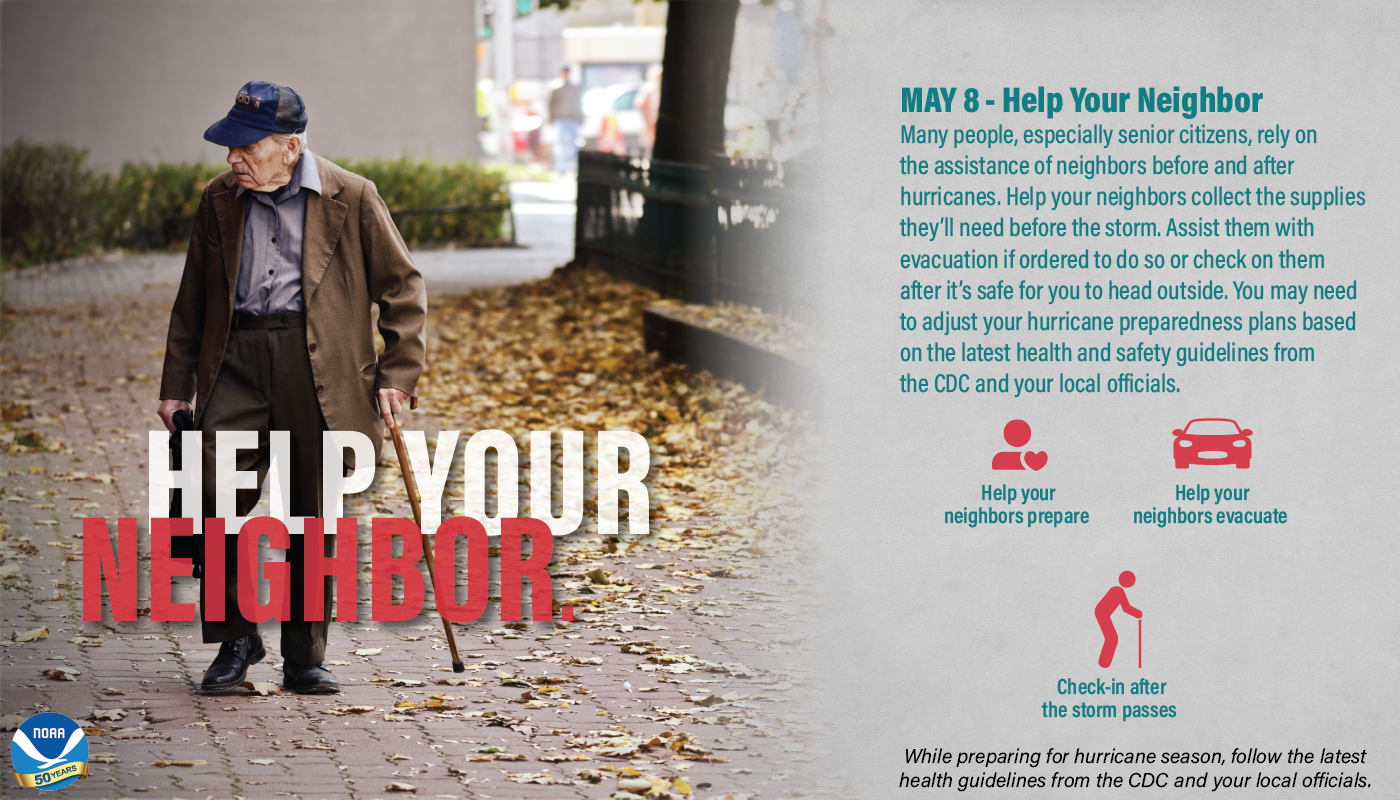
Many Americans rely on their neighbors and the community after a disaster, but there are also many ways you can help before a hurricane approaches. Learn about all the different actions you can take to prepare and recover from the hazards associated with hurricanes. Start the conversation now with these Neighbor Helping Neighbor strategies, and remember you may need to adjust your preparedness plans based on the latest health and safety guidelines from the CDC and your local officials.
7. Complete Your Business Continuity Plan
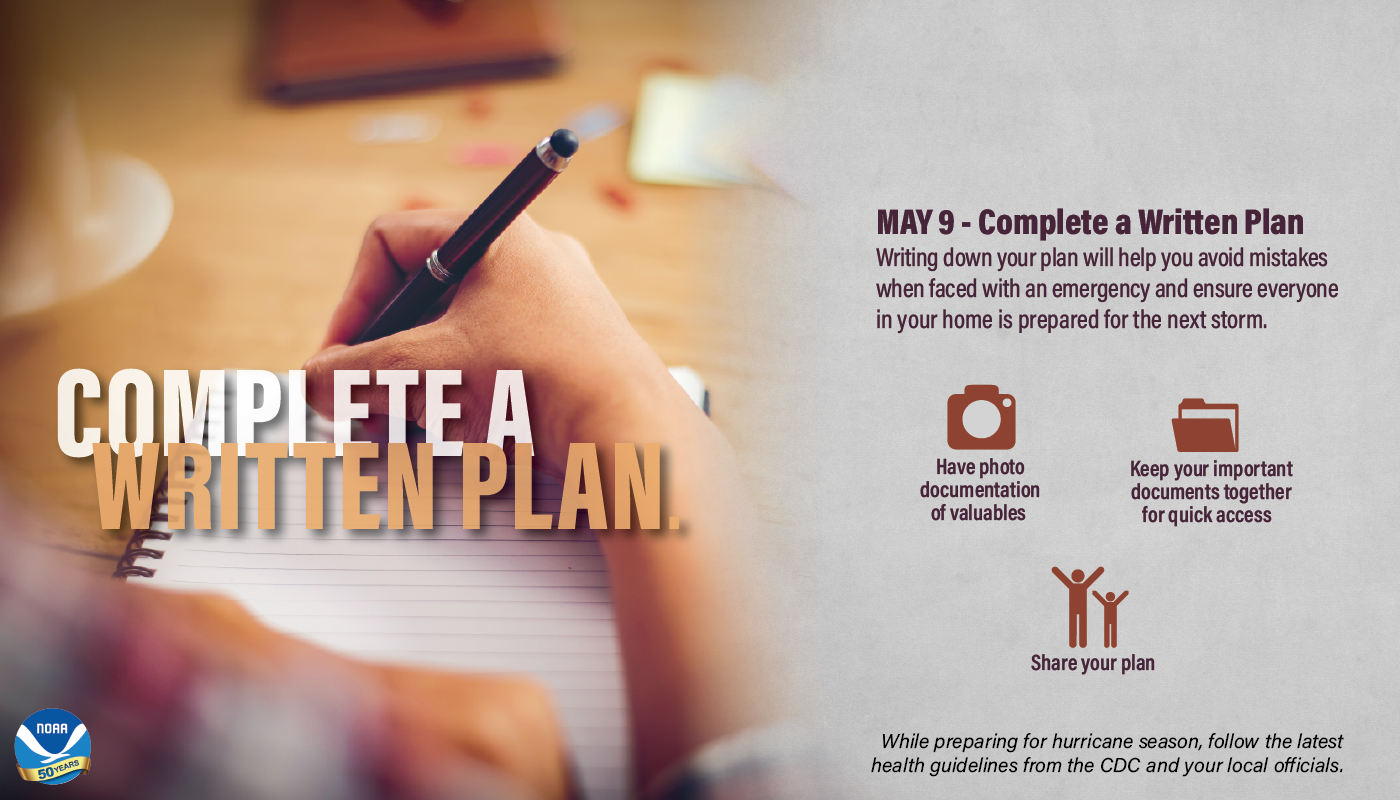
The time to prepare for a hurricane is now, before the season begins on June 1. Having a written plan will take the guesswork out of what you need to do to protect you, your family, your business, and your property. It’s important to be prepared. And by written, we mean typed, backed up on the cloud, and emailed to your family, friends and/or business team members that need to be informed. According to the Federal Emergency Management Agency (FEMA), if a business doesn’t have a Business Continuity Plan in place, 40% of small businesses won’t reopen after a storm event, 25% of businesses will close within one year, and 75% of businesses without a Continuity Plan will fail. Don’t be a statistic! It is important to have a Business Continuity Plan for your company and even more important that everyone understands it and you have strategies in place in the event of a storm. A Business Continuity Plan includes employee communication protocols, data, computer network, server, IT, infrastructure, and backup support should your business be affected by a hurricane, storm surge, damaging winds, flood and/or power outage. If you don’t have one yet, delegate a team to create your Business Continuity Plan, communicate it with your employees, and ensure that your business operations can continue and everyone stays safe and informed in the event of a storm. Maintaining business continuity is important. For more information, check out FEMA’s Ready Business Hurricane Toolkit.
8. Download Local & National Weather Alert Apps
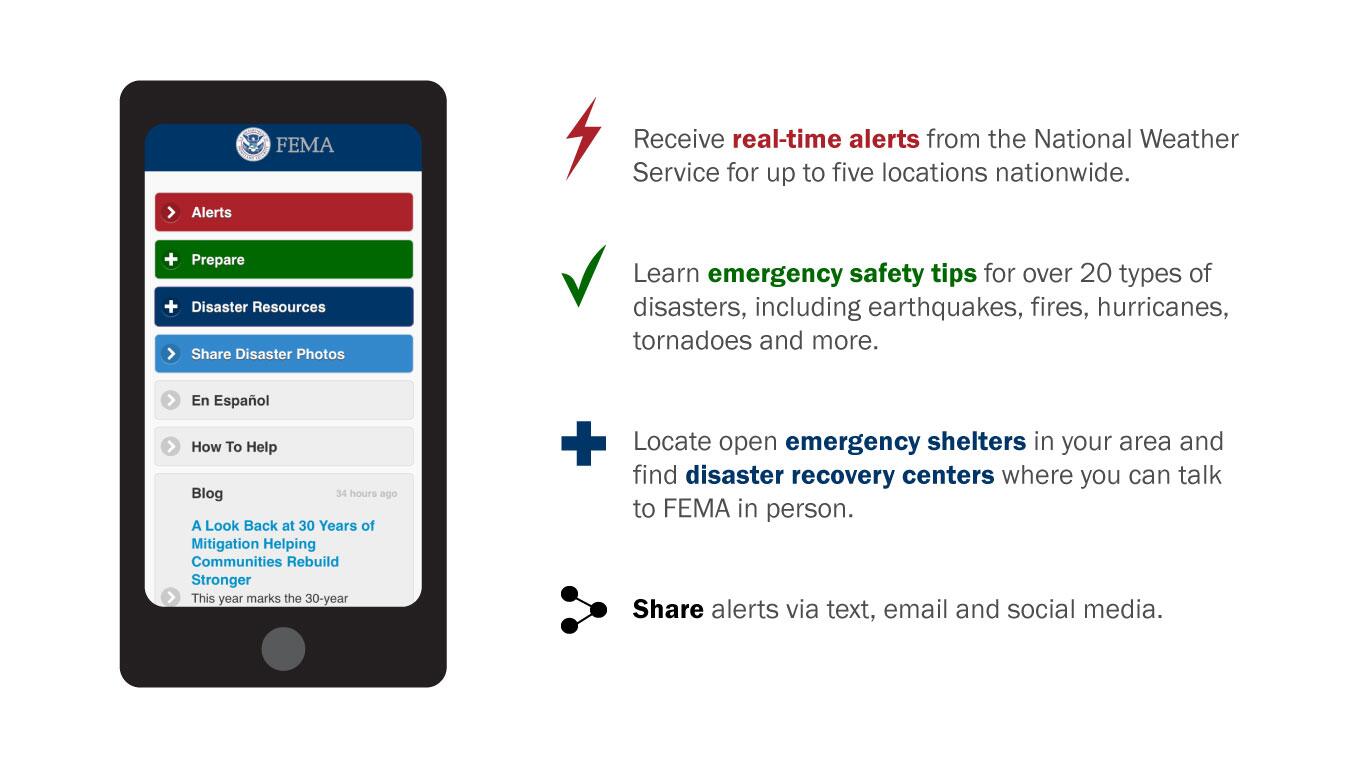
Sign up for local alerts on your phone. Visit Ready.Gov Alerts and learn how to search for local alerts and weather apps that are relevant for hazards that affect your area. Download the FEMA app for disaster resources, weather alerts, and safety tips. Sign up now so you’re prepared when the weather gets worse. If you’re a business owner, ensure that your team has all of the tools and resources to protect their families.
At Venture Construction Group of Florida (VCGFL), we have worked many hurricanes over the last 20 years, providing emergency services, remediation, pre and post inspections, roofing, restoration and construction services. Specializing in commercial/ industrial projects, we proudly serve property owners and businesses with storm damage restoration throughout Florida, Puerto Rico, U.S. Virgin Islands, Bahamas and the Caribbean. Being prepared is one of the best things you can do to protect yourself, your family, your business and your property. Together, we can do our best to be prepared and mitigate risk.
#HurricanePrep #HurricaneStrong #HurricaneSafety #ItOnlyTakesOne
Resources:
- National Weather Service Hurricane Preparedness Tips
- National Weather Service Definitions: Watches, Warnings, Advisories and Outlooks
- Health & Safety Guidelines from the CDC
- FEMA: Business Hurricane Toolkit
- FEMA: Mobile App
- FEMA: National Flood Insurance Program
- FEMA: What is Mitigation?
- FEMA: Flood Zone Maps
- Florida Disaster.org: Find Your Evacuation Zone by County
- Florida Disaster.org: Hurricane Supply Checklist
- Florida Disaster.org: Disaster Preparedeness Maps By County
- Florida Disaster.org: Shelters by County
- Ready.Gov: Alerts
- Ready.Gov: Community Preparedness & Neighbors
- Ready.Gov: Emergency Preparedness Kit
- Ready.Gov: Make A Plan
